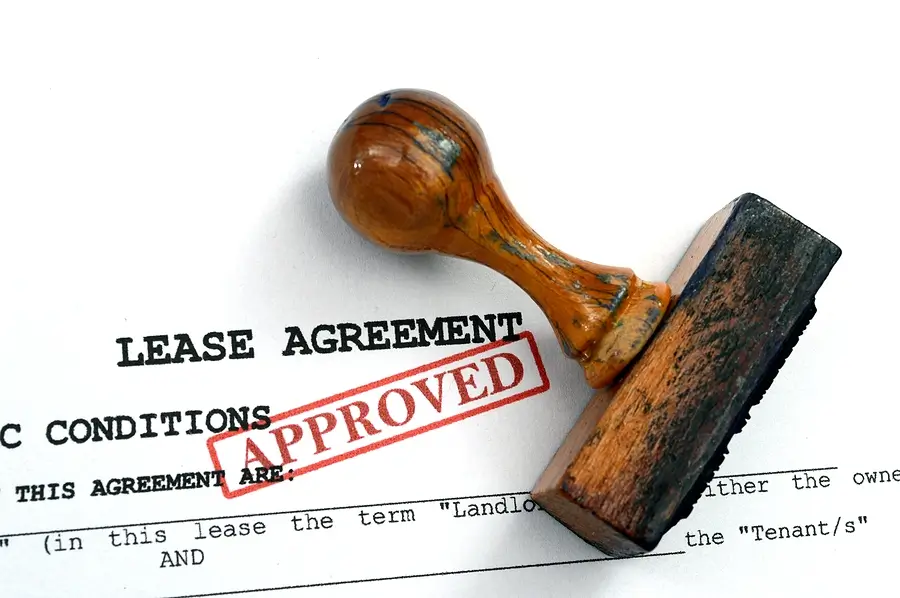As a property owner or manager, you're likely familiar with the juggling act of keeping your rental units occupied while navigating rental lease agreement intricacies.
But when a lease term comes to an end, should you opt for a lease extension or a lease renewal? Understanding the differences between these two strategies can be crucial in keeping your tenants happy and your properties profitable.
This blog post unravels the difference between lease extensions and renewals. We'll guide you through the essentials of each approach, helping you make informed decisions to meet your property's unique needs.
Understanding Lease Agreements
A rental agreement is a legally binding contract between a landlord and a tenant, outlining the terms and conditions of the rental property. It's a foundational document that helps both parties avoid disputes and ensures a smooth rental experience.
This document can serve as the original lease or be revised to become a new agreement.
Lease agreements can vary widely, but they typically include key details such as the rent amount, lease term, and responsibilities of both parties.
Customizing these agreements to fit the specific needs of the landlord and tenant is common practice and beneficial for both sides.
Lease Renewal
When a current lease expires, a lease renewal creates a brand-new lease agreement. This often retains many of the terms from the original lease agreement while allowing for updates to reflect current market conditions or tenant needs. The lease renewal terms are crucial as they offer a chance to revise aspects like rent increases or changes in property use.
Lease renewals are beneficial when significant changes to the lease terms are necessary. For example, if you want to increase the rent amount or modify conditions, a lease renewal is your go-to option.
Renewals provide stability for both landlords and tenants. They offer the reassurance of a continued relationship and the opportunity to update terms to better suit evolving circumstances.
Lease Extension
On the other hand, a lease extension extends the term of an existing lease agreement. This approach offers short-term flexibility, maintaining the status quo with minimal administrative effort. In some cases, lease extension agreements may simply prolong the terms of the original lease without any alterations.
Lease extensions are typically used for short periods, such as 3-6 months. They're an excellent choice when you want to keep the property occupied without committing to a brand-new lease agreement.
For both landlords and tenants, lease extensions can provide a steady rental income and security without the need for a long-term commitment.
Choosing Between Lease Renewal and Extension
Deciding between a lease renewal and an extension requires careful consideration of tenant needs and property goals.
Lease renewals are ideal when you need to update key terms of the agreement, offering the flexibility to align with current market conditions. They're particularly useful if you're looking to secure a tenant for a longer period.
In contrast, lease extensions are more suitable when you want to maintain the current terms with minimal changes. They offer a temporary solution to keep the property occupied while giving you time to assess long-term plans.
Understanding these options helps you make informed decisions that benefit both you and your tenants.
Tenant’s Perspective
Tenants have a vested interest in the lease renewal process. Engaging in negotiations allows them to ensure the lease terms align with their needs and comply with the law.
Tenants should carefully review the lease agreement before signing. This helps avoid disputes and ensures their rights are protected. If any clauses are concerning, tenants can negotiate terms, especially if they violate local landlord-tenant laws.
Seeking legal advice is wise if tenants are uncertain about any aspect of the lease agreement or renewal process.
Legal Regulations
Both lease renewals and extensions are subject to specific legal standards. Landlords and tenants must adhere to local laws to ensure compliance.
Key legal aspects to consider include rent control laws, security deposit regulations, and eviction procedures. Familiarity with these regulations helps avoid potential disputes and ensures a smooth leasing process.
Staying informed about local laws and regulations is a crucial step for landlords and tenants alike.
Lease Agreement Considerations
Lease agreements should clearly outline essential terms, such as the rent amount, lease duration, and responsibilities of both parties. Customizing the agreement to fit the specific needs of the landlord and tenant is common practice.
Regular review and updates of lease agreements ensure compliance with local laws and regulations. This practice helps maintain clarity and prevent potential conflicts.
New Lease Agreement
When a lease renewal is executed, a new lease agreement comes into play. This provides an opportunity to negotiate new terms and conditions, such as a new rent amount or lease duration.
A new lease agreement offers a fresh start for both landlords and tenants, allowing them to update terms to better suit their needs and preferences.
Mastering Lease Options: Boost Property Management with PropM Inc. Insights
Understanding the distinction between lease renewals and lease extensions is essential for effectively managing rental properties. Lease renewals offer a chance to revise and update terms, making them suitable for longer-term commitments. In contrast, lease extensions provide short-term flexibility without the need for extensive changes.
By considering the needs of both landlords and tenants, you can make informed decisions that benefit everyone involved. Whether you choose a renewal or an extension, the right approach can contribute to a successful and harmonious leasing experience.
For further insights and resources on property management responsibilities such as lease renewal, PropM Inc. is here to help you. Check our services to optimize your property today!


